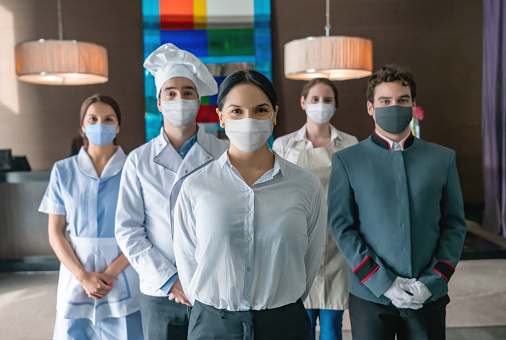Call Centers Can Help In The Ramp-Up
By Larry Mogelonsky | June 16, 2020
While maintaining a lean team to help keep costs down and abiding by the new physical distancing rules, how are you going to manage an increased reservation call volume as people come out of lockdown?
To focus the conversation for this article, let’s talk about only the intake team for voice reservations, even though I trust you are simultaneously looking into how your booking engine provider can help with online direct and OTA sales. Overseeing this downturn as an asset manager for a property, we found that a hotel-oriented call center could seriously help because it integrated with our PMS and CRS, amongst other enhancements that allowed us to answer incoming calls without any onsite staff.
Recruiting a call center was previously discussed to reduce labor costs and close more sales leads, but the main fear was always that these outsourced reservationists would never be as knowledgeable about the product as the home team. Now, however, we are in the midst of a total disruption whereby a hotel’s phone can go unanswered for hours at a time due to staff minimalization.
Even on a lean team, hotels need the ability to answer the phone so that any customer is greeted by a vivacious live agent instead of a downbeat voicemail message. Given that a second wave of COVID-19 may be on its way this winter causing another business cycle interruption, the argument for outsourcing the entire reservations department becomes all the more apparent as the move ensures the phones are always diligently managed while also cutting costs.
As an added bonus to the PMS integration, what we found was that the best modern call centers offered CRM tools to give more insights for our own sales team as to what our guests wanted or to pick up the conversation on leads that didn’t close for various reasons—primarily the need to confirm flights or check with another party beforehand. Many can also help in-house restaurants by jotting down takeout orders or feeding reservations through to a booking platform like OpenTable so that you no longer have to rely on servers picking these up.
The key therein is to address the concern about training and accountability, for which I was about to discuss the present scenario with my friend, John Smallwood, the CEO of Travel Outlook Premium Hotel Call Center. As he remarked, “To alleviate the worry about outsourcing reservations calls, what’s needed is a call center that’s devoted entirely to hospitality. This is accomplished by training agents to speak the language of hotels through adaptable learning management systems based on Forbes Five Star and through the monitoring of said agents using cutting-edge tools that provide screen scrapes, audio recordings, dynamic speech analytics and thorough reporting to ensure quality.”
Just like what happened after the 2008 recession, these trying times will ultimately lead to us maintaining leaner operations for long after the lockdown is lifted. But just as the downsizing was difficult, so too will the growing pains as people surge back into travel mode.
For this, I am afraid of situations where guests are eager to book but the onsite team can’t handle the volume and the hotel reservation ultimately goes elsewhere. Or similarly, a front desk agent receives the call but is too rushed or distracted to properly build rapport or find the appropriate CRM data to close or potentially upsell.
Ultimately, while the booking conversation is largely around enabling mobile and purely digital channels, lest we forget that our phones are also an invaluable piece of technology, especially during times when many guests may want to hear a hotel representative alleviate their concerns first-hand. Now is your chance to use this downtime to investigate your options to maximize the revenue from this channel.




